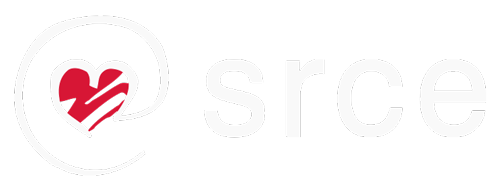- Hrvatski
Course content
Croatian Philosophy
- Code:
- 227467
- Abbreviation:
- FIL
- Higher education institution:
- Faculty of Croatian Studies
- ECTS credits:
- 3.0
- Load:
- 15(L) + 15(S)
- Issuing teachers:
-
Professor Zvonimir Čuljak, PhD
- Course contractors:
-
Professor Zvonimir Čuljak, PhD (L, S)
- Course description:
- 1. Present the main elements of early Croatian philosophy (from the 12th to the beginning of the 19th century). 2. Analyse the main theories, concepts, and arguments of early Croatian philosophers, 3. Present the achievements of early Croatian philosophers with respect to their scientific, philosophical, social, and cultural contexts. 4. Enable students to analyse concepts used by early Croatian philosophers. 5. Enable students to analyse and evaluate arguments used by early Croatian philosophers. 6. Enable students to evaluate the achievements of early Croatian philosophers in the context of European philosophy and science. Learning outcomes at the level of the programme to which the course contributes: 1. Knowledge and comprehension of - the distinctive features of academic philosophy with its standard disciplines, problems, theories and methods - the most important periods of the history of philosophy and their respective philosophical schools, individual philosophers and their works 2. Competencies - the ability to interpret and evaluate philosophical concepts, arguments and theories - the ability to critically read and interpret philosophical, especially classical texts 3. Research and Presentation - the ability to independently read and critically analyse simpler philosophical texts On successful completion of the course, students will be able to: 1. recognize the main elements of early Croatian philosophy (from the 12th to the beginning of the 19th century), 2. analyse the main concepts used by early Croatian philosophers, 3. analyse attitudes and arguments by early Croatian philosophers 4. correlate the main elements of early Croatian philosophy with the respective scientific, philosophical, social, and cultural contexts, 5. understand the contents of the main scientific and philosophical concepts and terms used by early Croatian philosophers, 6. evaluate attitudes and arguments by early Croatian philosophers in the context of the history of science and history of philosophy. Course content: 1. Introduction to early Croatian philosophy I. Croatian medieval philosophy 2. Philosophical and scientific work of Hermann the Dalmatian (ca 1100.-after 1143). II. Croatian renaissance philosophy 3. Juraj Dragišić (ca. 1445-1520). 4. Federik Grisogono (1472-1538) 5. Matija Vlačić Ilirik (1520-1575) 6. Frane Petrić (1529-1597) 7. Nikola Gučetić (1549-1610) 8. Faust Vrančić (1551-1617) 9. Juraj Dubrovčanin (the 2nd half of the 16th century. -1617) IV. Natural philosophy and metaphysics of Ruđer Bošković (1711-1787) 10. Main elements of Bošković's natural philosophy: theory of forces and the structure of matter; theories of space, time, and motion 11. Bošković's explanation of the mind-body relation ("soul" and "matter") 12. Bošković's consideration of the determinism and God's action V. Croatian philosophy at the of the 18th and the beginning of the 19th centuries 13. Andrija Dorotić (1761-1837) 14. Simeon Čučić (1784-1828) 15. Concluding discussion
- Course in study programme:
-
Code Name of study Level of study Semester Required/Elective 17 Philosophy and Culture undergraduate 1 elective 17 Philosophy and Culture undergraduate 2 elective * 17 Philosophy and Culture undergraduate 3 elective 17 Philosophy and Culture undergraduate 4 elective * 17 Philosophy and Culture undergraduate 5 elective 17 Philosophy and Culture undergraduate 6 elective * * the course is not taught in that semester
Legend
- S - Seminar
- L - Lectures

